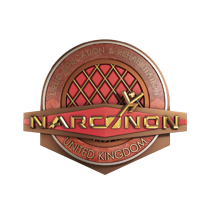Work Hard, Play Hard

I’ve been fortunate enough to work for various organizations over the past decade, including the upper levels of the legal sector, the financial sector and a FTSE 100 events business.
I have friends who worked more in the financial sector, where a high-performing culture of competitiveness, tenacity and resilience exists. This is often necessary in order to motivate team members to meet the objectives and goals that their roles demand from them.
Often in high-pressure environments, where the grueling demands and stresses of these jobs can challenge morale, there are incentives offered for employees and team members to push through their mental barriers, not give up, go the extra mile and get the results needed. This is used across many industries and businesses and can be highly effective.
The idea of letting loose and partying after meeting a target, closing a deal, or even just to celebrate the end of a hard day—can be all that gets these employees through the tough work they face. The partying becomes the reward for the high-pressure ‘go hard or go home’ mentality that’s necessary for work. However this go hard or go home mentality often carries through to the partying itself, which often leads to excessive drinking, drug taking and competitiveness with how much can be consumed.
When this culture is deeply embedded into a work environment, more junior colleagues who are being mentored and taught professionally by their senior co-workers, may take on the same habits when socializing and partying within the same work social group.
I keenly observed my mentors as successful business people who are high-paid, high-powered, and highly respected professionally, in order to learn how to get ahead and be successful in my own right. When I first witnessed these colleagues taking drugs, I genuinely didn’t understand the references they were making and the discreet lingo they were using—they indirectly asked me if I was ‘holding’ which I then understood meant—was I in possession of my own cocaine at that moment in time.
In other experiences, I saw senior figures and team leaders reference cocaine while motivating the team to hit a particular target—further, there was one occasion where the team went back to the office on a Friday night after a work drink, specifically to take cocaine at their desks.
It was in one way thrilling but confusing, because here were the authority figures of the business referencing, possessing and using a drug that had long been associated with glamour power and success (through TV and film), whereas on the other hand these people were supposed to be model workers/professionals and had been rewarded professionally for their conduct—now doing something which was clearly illegal and very destructive.
It crossed my mind whether it was actually a set-up or some sort of test, but soon realized it wasn’t. I then wondered whether I would be favoured professionally if I brought and took cocaine with the senior figures at these specific opportunities.
In an elite professional working environment, you often nurture relationships to gain access to the time and attention of successful figures in order to learn from them and demonstrate your own abilities. Would rejecting their actions with cocaine damage that relationship-building process? Would participating and embracing the open drug use further that relationship and be an advantage?
For young impressionable people, it can be a tough call to make on the spot, but when the people who control your career progression, salary and professional development are openly glamourizing and using drugs, it’s easy to see why friends of mine formed the same habits. They developed the view that it was okay to do those drugs and that it was part of the lifestyle—largely influenced from the ‘leaders’ around them at the time.
Professionals often have drug habits and a work culture that makes drug-taking a consistent exercise—if you really want to be sharp, focused, and make it further than you co-workers, visit Narconon UK to see how the methods and techniques can give you an all-natural advantage.
